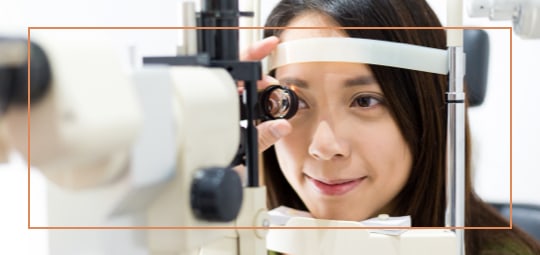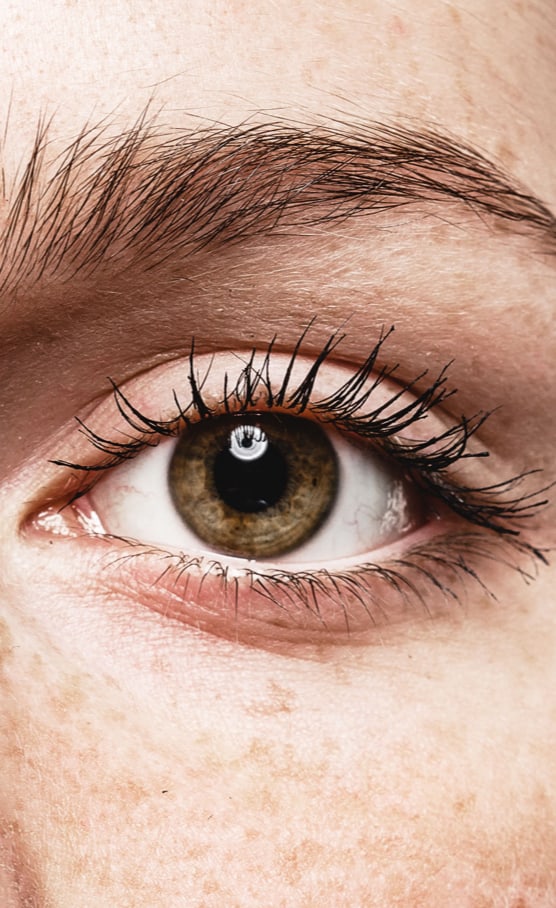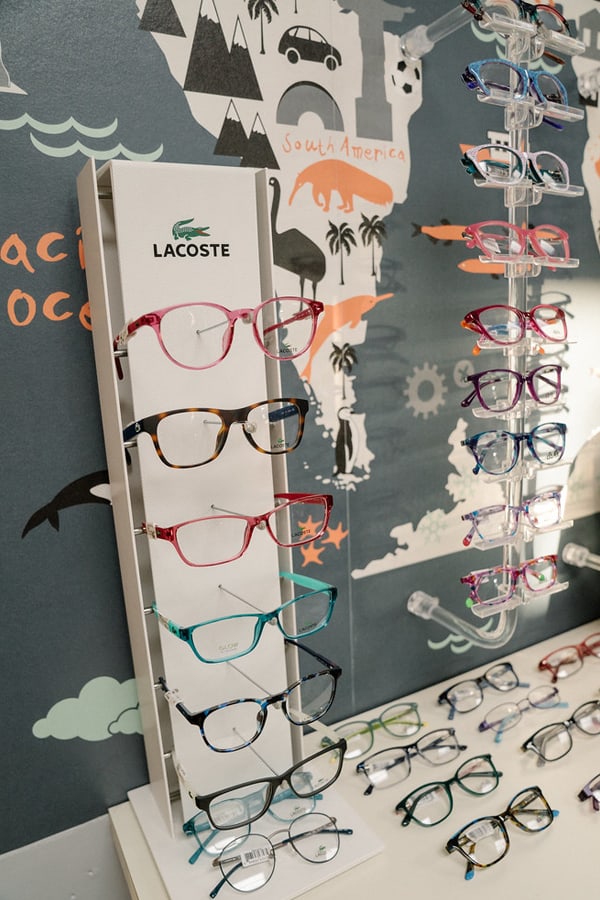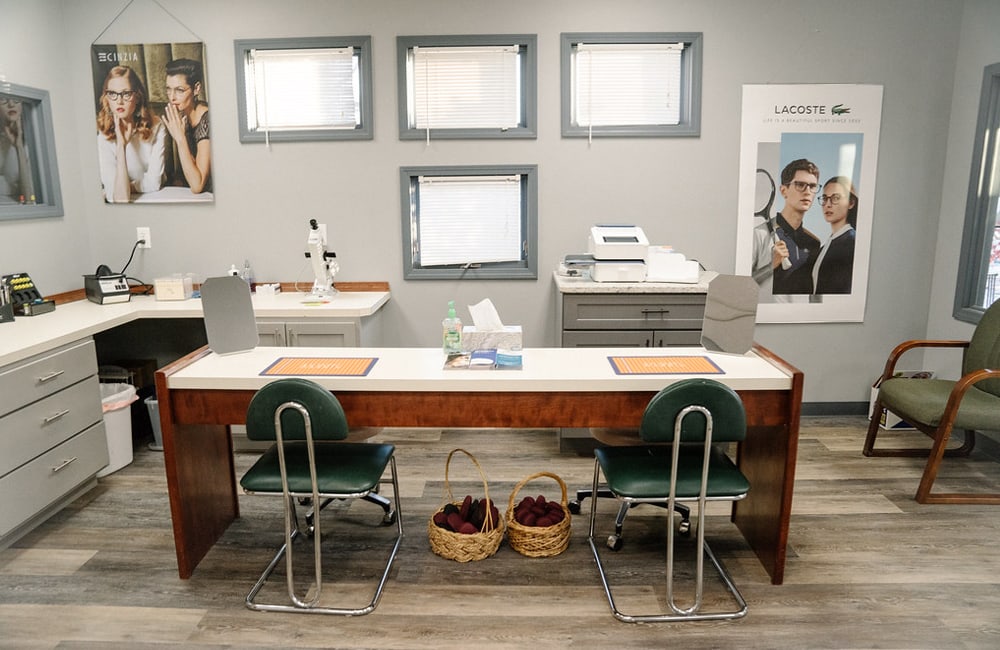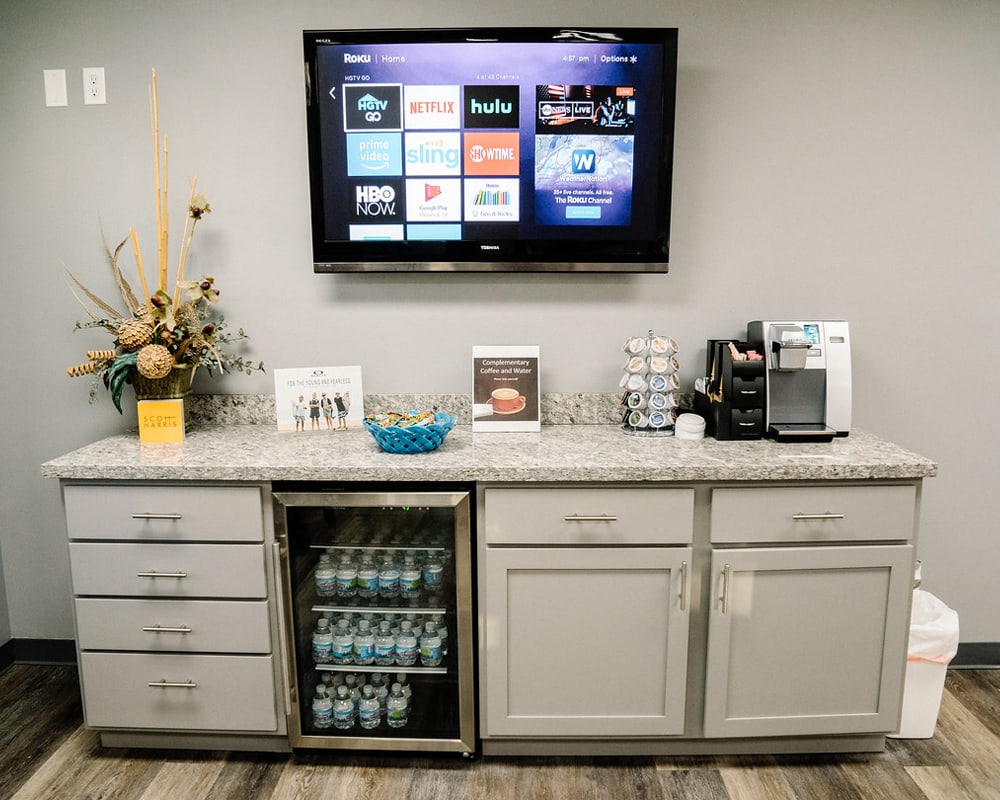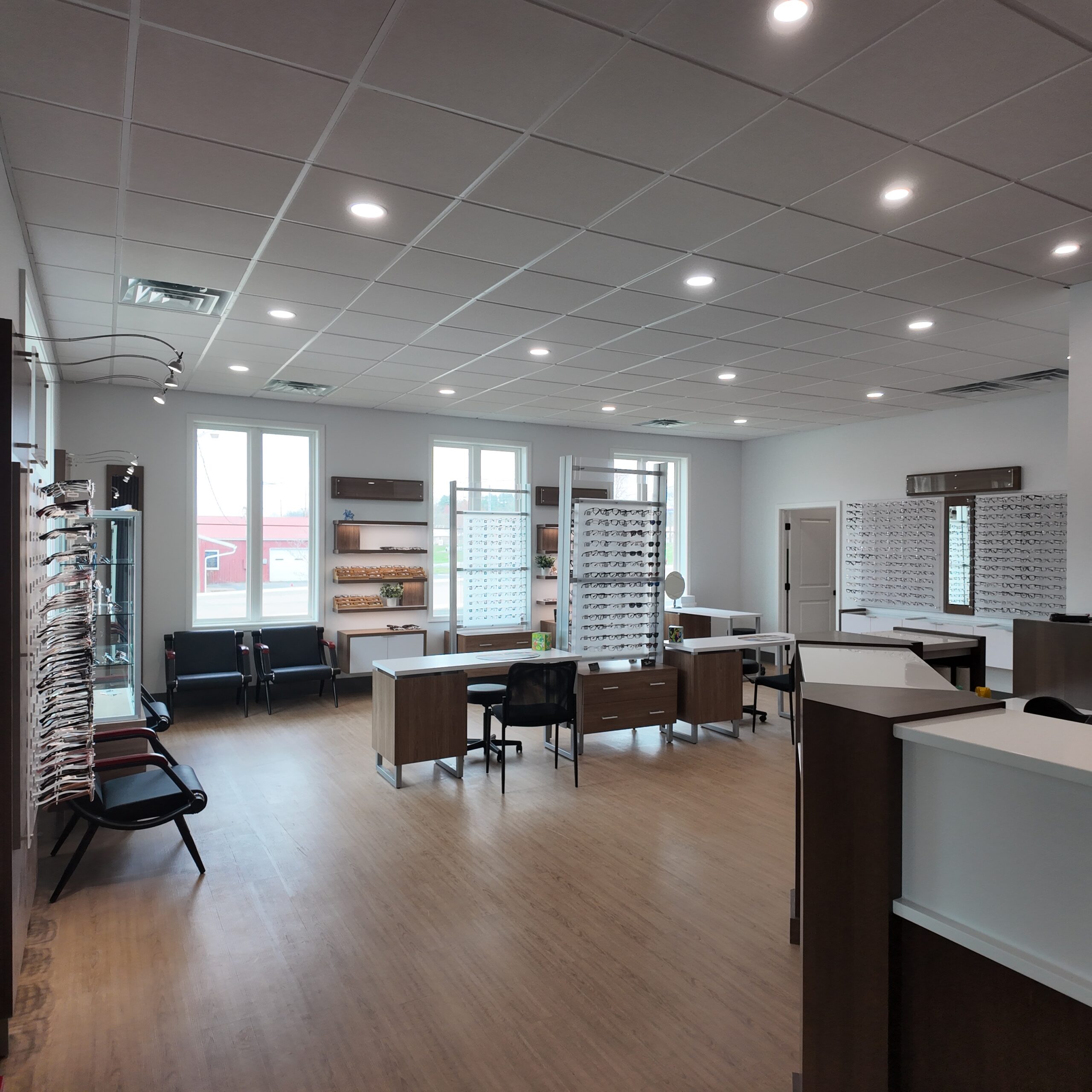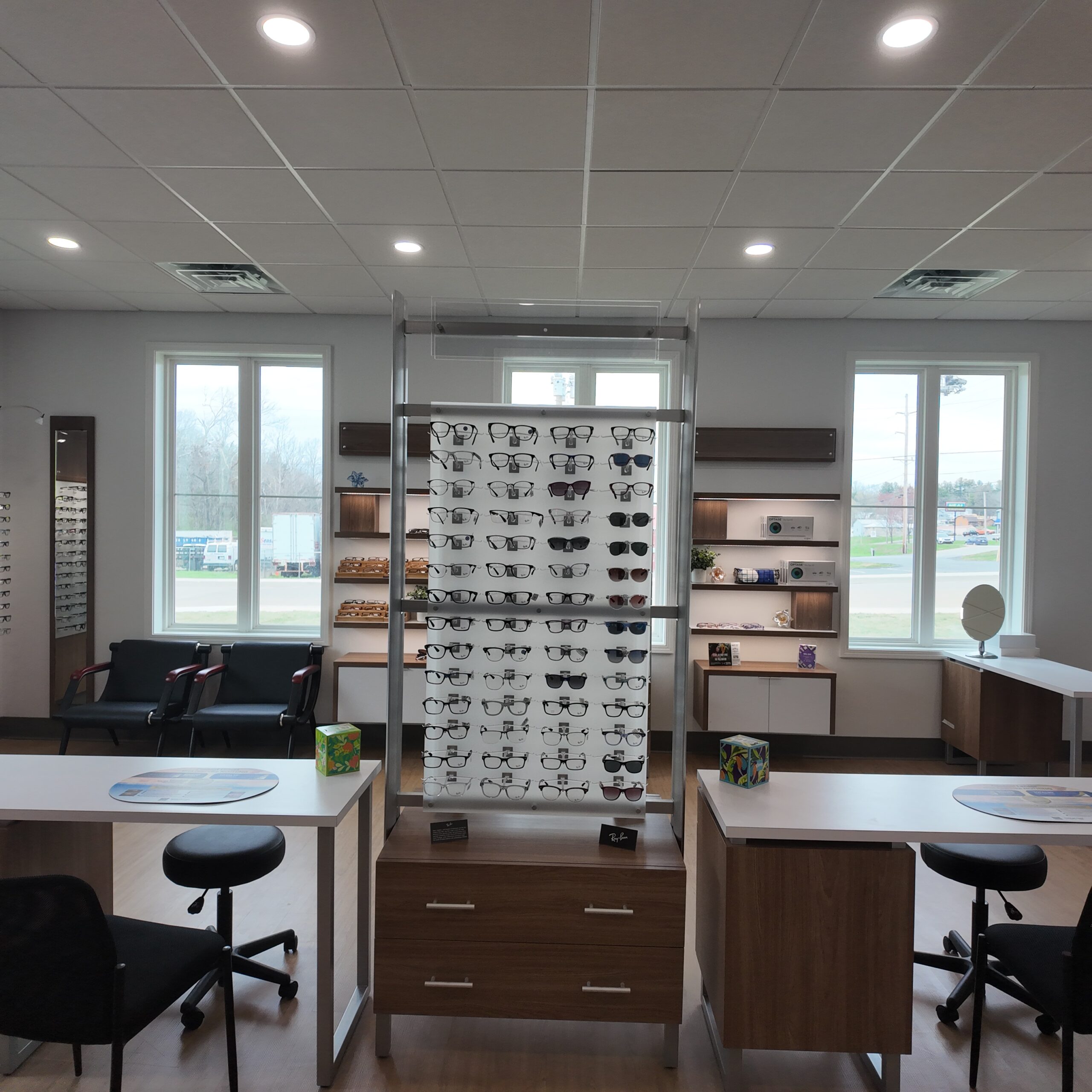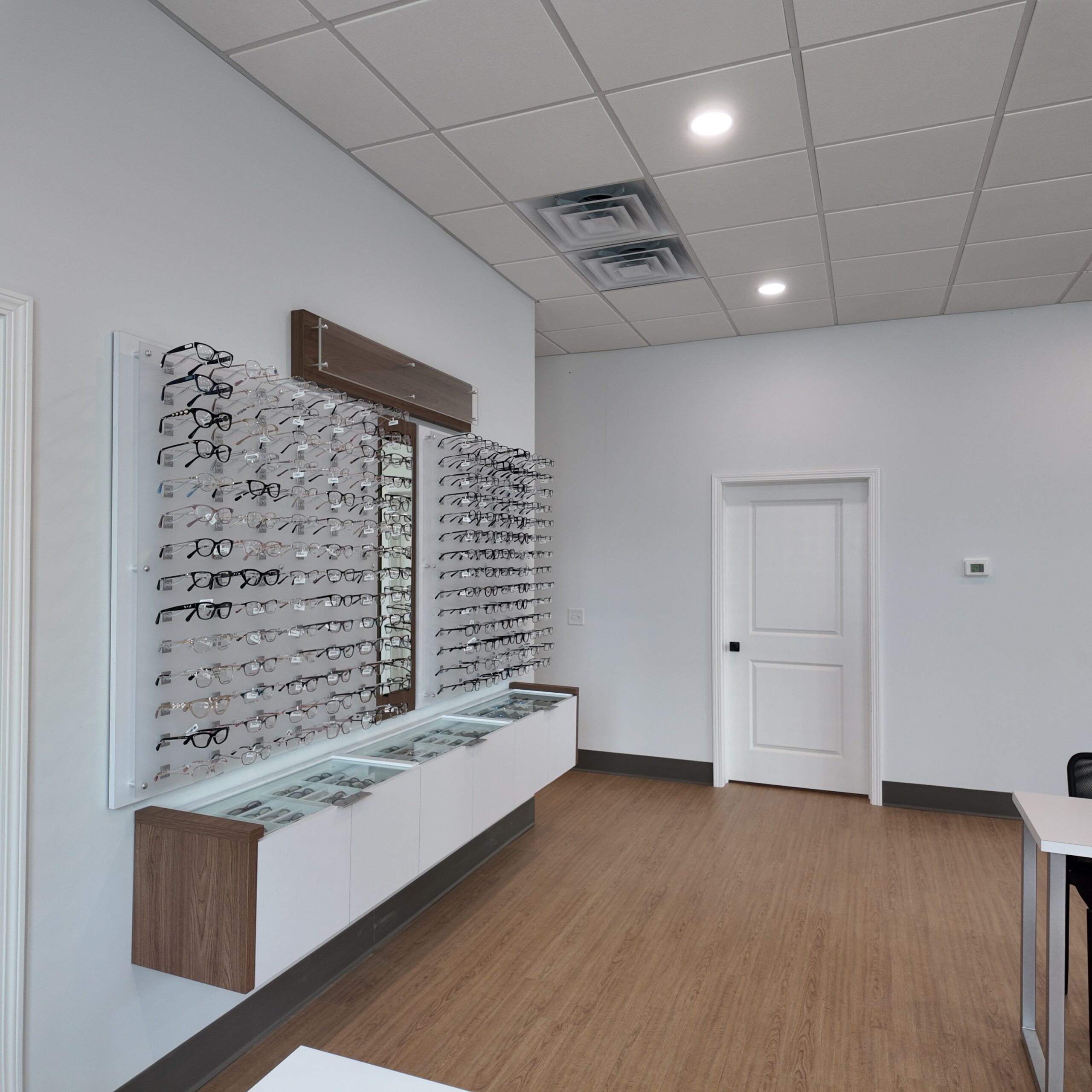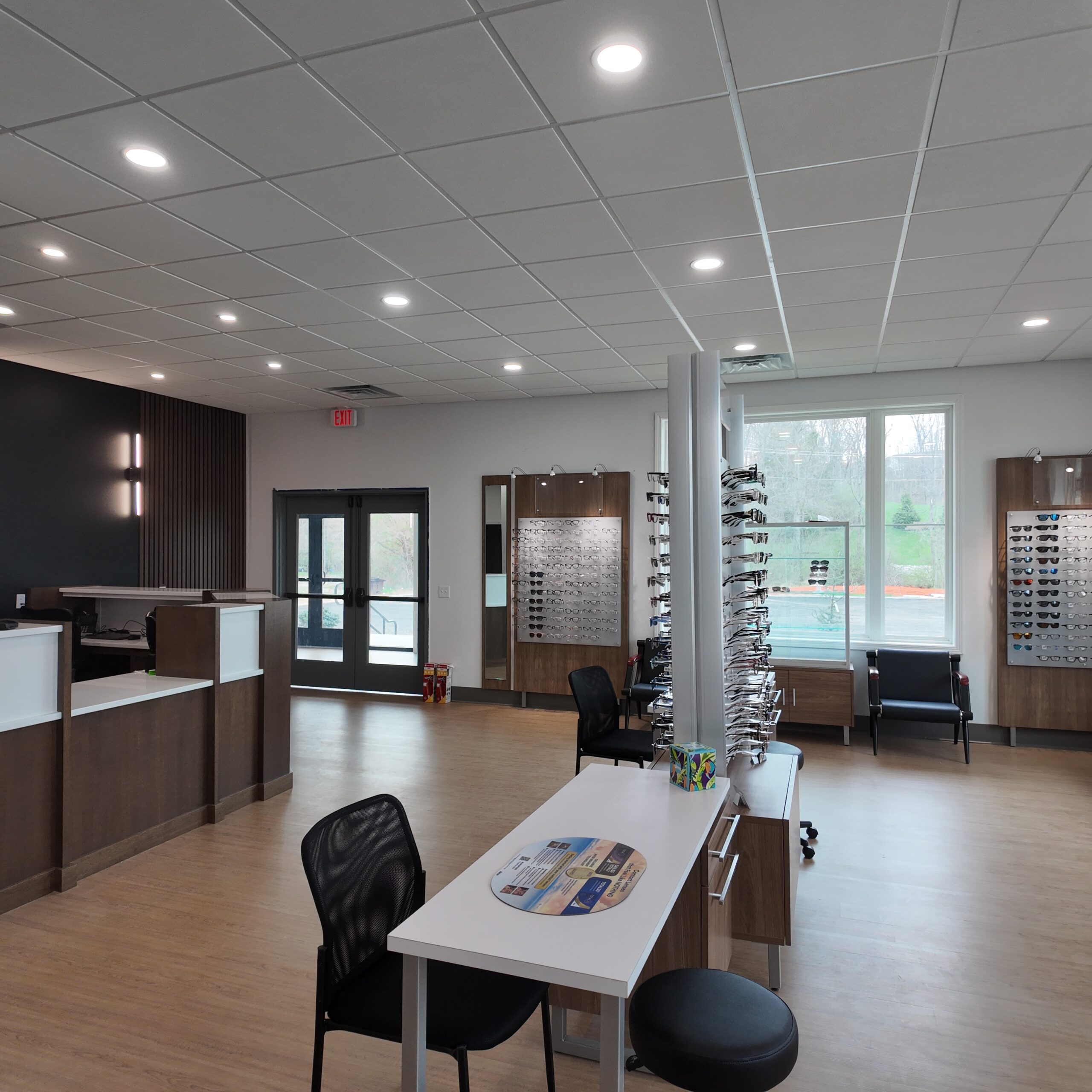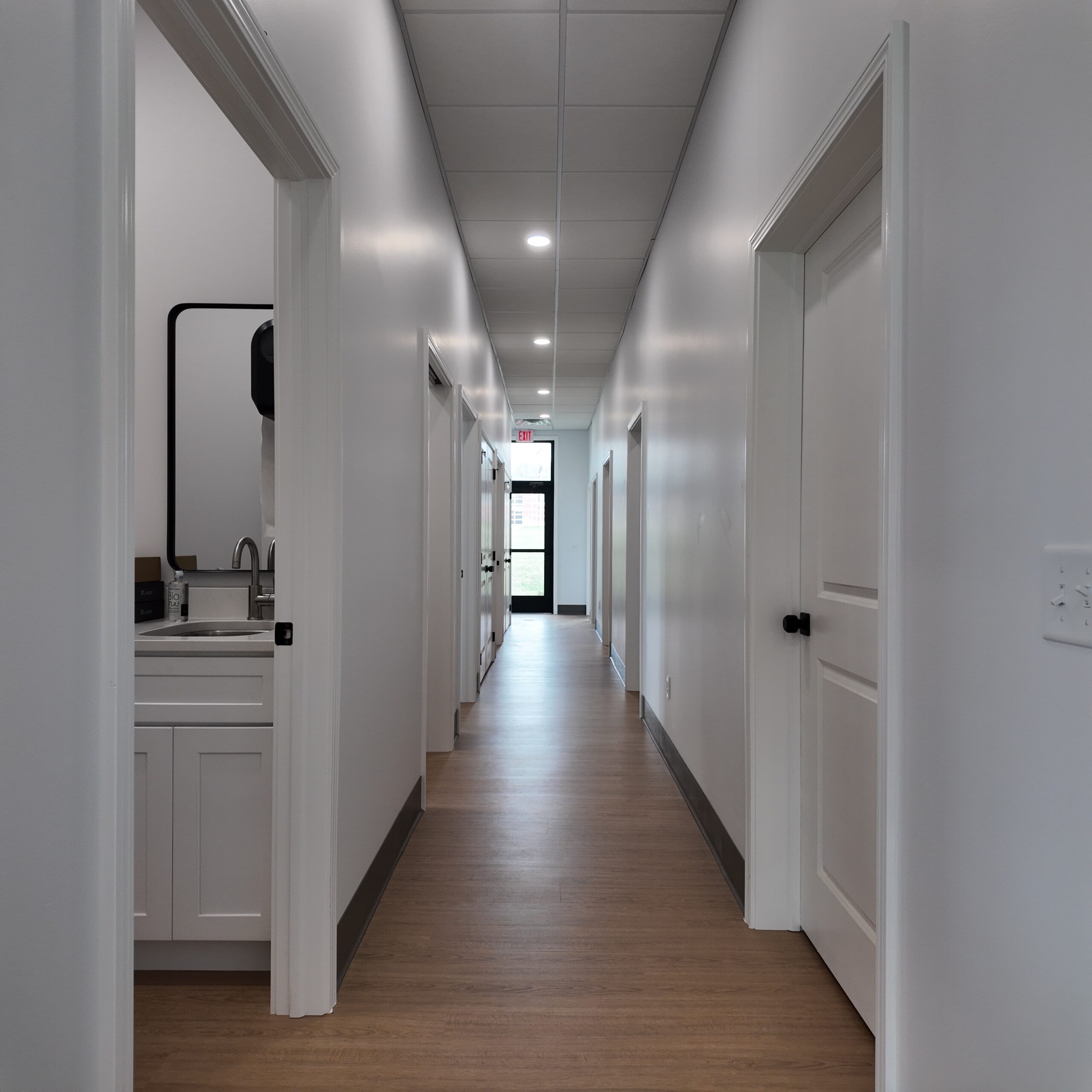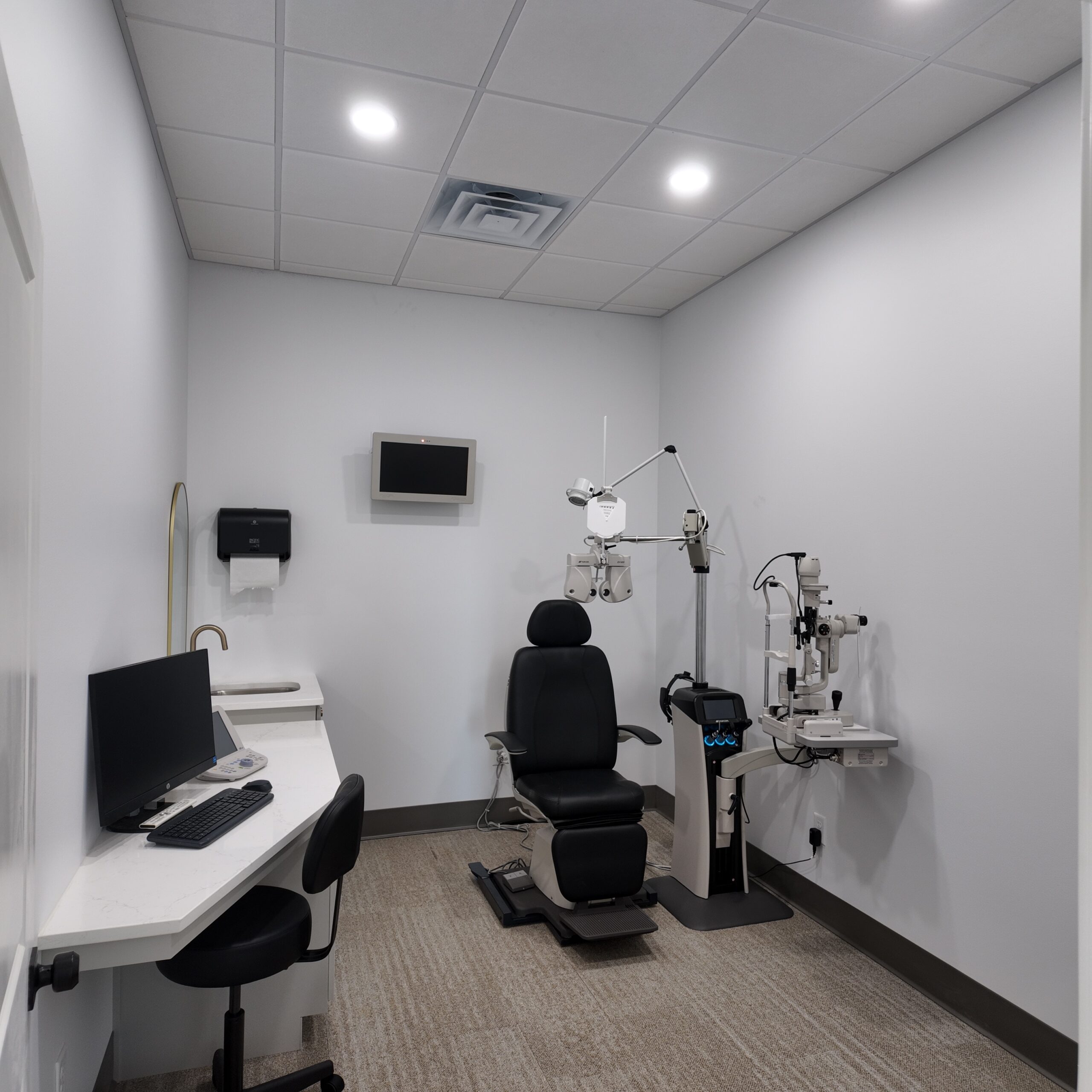Scheduling an eye exam can sometimes raise the question, “How long will this appointment take?” Knowing what to expect can help you plan your day and feel more at ease before visiting your optometrist’s office.
A regular eye exam can last from 30 minutes to an hour. Exams that involve specialized testing can take up to two hours.
What Happens During an Eye Exam?
An eye exam does more than just determine your prescription for glasses or contact lenses. It’s an opportunity for your eye doctor to assess the health of your eyes and detect underlying health conditions. A typical eye exam includes:
1. Checking Your Medical & Vision History
Before anything else, your eye doctor will ask about your general health, past or current vision issues, family eye health history, and if you wear glasses or contact lenses. This usually takes 5-10 minutes and gives your doctor the information necessary to customize your exam.
2. Visual Acuity Test
This part of the exam measures how well you can see. You’ll likely read letters on an eye chart from a specific distance. This test evaluates your visual clarity and usually takes 5 minutes.
3. Refraction Test
Using a phoropter, your eye doctor determines your proper lens prescription by showing you a series of lenses. This part can last 10-20 minutes.
4. Eye Muscle Test
This test checks how well the muscles around your eyes are working together. Your eye doctor might ask you to follow a moving object as it moves in different directions. This part usually takes 5 minutes.
5. Peripheral Vision Test
Your eye doctor will assess how well you can see out of the corners of your eyes, which can help detect issues like glaucoma. This part of the exam takes approximately 5-10 minutes.
6. Internal & External Eye Health Evaluation
Using specialized tools like a slit lamp or ophthalmoscope, your doctor will examine the external and internal structures of your eye. This thorough inspection helps detect signs of eye diseases, such as cataracts or macular degeneration. This part usually lasts 10-20 minutes.
How Long Will My Eye Exam Take?
On average, a standard eye exam takes anywhere from 30 minutes to an hour. However, some factors can affect the duration:
- First-time visits: If this is your first eye exam, your doctor may want to spend extra time understanding your medical history and answering any questions you might have.
- Specialty tests: In some circumstances, you may need additional testing like a visual field test, retinal imaging, and eye pressure tests—these will add to your total time.
- Pupil dilation involves widening your pupils so your optometrist can examine the back of the eye. If dilation is part of your exam, plan for around 1.5 to 2 hours including the waiting period for the eye drops to take effect.
Why Are Regular Eye Exams Important?
Regardless of how much time they take, regular eye exams are essential for maintaining healthy vision and overall well-being.
Eye exams are important for detecting vision problems early. Even if you have perfect vision now, conditions like nearsightedness, farsightedness, and astigmatism can develop or worsen over time. Regular eye exams allow your optometrist to catch the signs early and monitor conditions as they progress.
Eye exams help prevent eye diseases. Many eye diseases, such as glaucoma and macular degeneration, often don’t show noticeable symptoms early on. Regular exams can detect these conditions before they cause irreversible damage.
Eye exams are for monitoring general health. Did you know an eye exam can reveal signs of conditions like diabetes, high blood pressure, and even some autoimmune diseases? Your eyes are a window into your overall health.
Tips for a Smooth Eye Exam
While comprehensive care shouldn’t be rushed, a little preparation can help make your eye exam smoother and more efficient. Here are some ways you can prepare for your next appointment:
- Bring your prescription glasses and contacts.
- Know your family medical history.
- Have a list of medications you take or visual symptoms you have been having.
- Have a list of any questions that you want to ask.
When Should You Schedule Your Next Eye Exam?
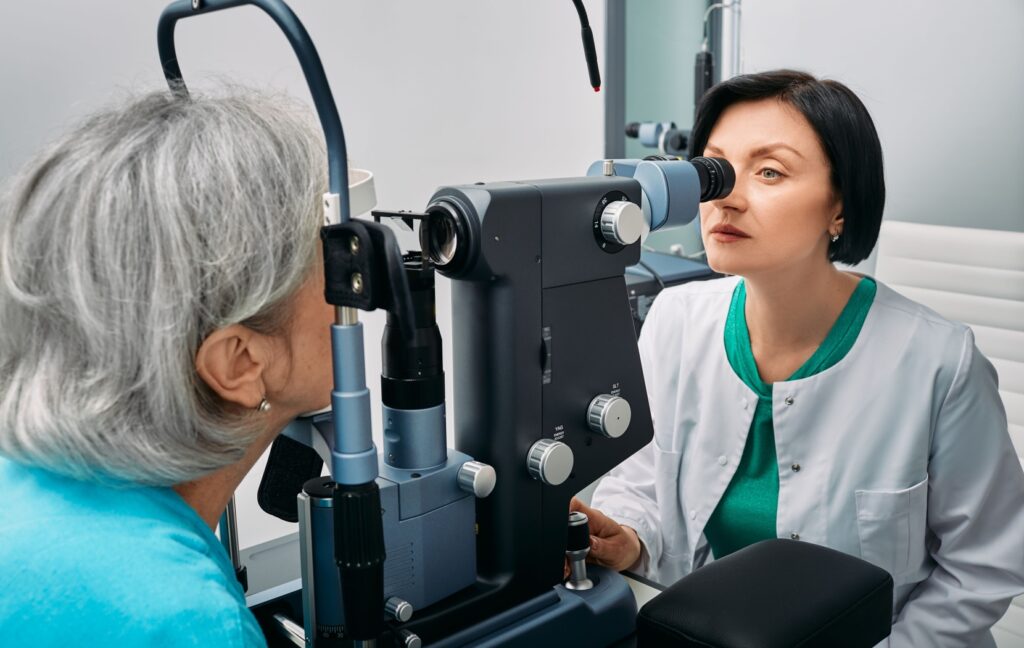
While the timeline for routine eye exams can vary depending on your age, vision needs, and overall health, here are some general guidelines:
Children
Children’s vision is critical to their developmental and academic success. Children should have their first eye exam at 6 months old. Their next eye exam should happen when they are three years old. After your child enters school, it’s recommended that they have an eye exam every year until they reach 18.
Adults
Adults aged 18-39 who do not have pre-existing visual conditions should schedule an eye exam every 1-2 years. You may need more frequent eye exams if you have a vision condition or eye disease, or your optometrist recommends it.
Adults aged 40-65 may need more frequent eye exams, as this is when some age-related visual conditions start to appear. Women are more likely to experience certain eye conditions after menopause due to hormonal changes, so it’s important to consult an optometrist when experiencing menopausal symptoms.
Seniors
Adults over the age of 65 are more likely to develop eye diseases like macular degeneration, glaucoma, and cataracts. This means it’s important for seniors to book annual eye exams to stay on top of their eye health.
Maintain Healthy Vision
Eye exams are more than just a checkup, they’re an investment in your health and quality of life. At Insights Optical, we’re here to help you meet your vision health goals. If you’re due for your next eye exam book an appointment with us today.



